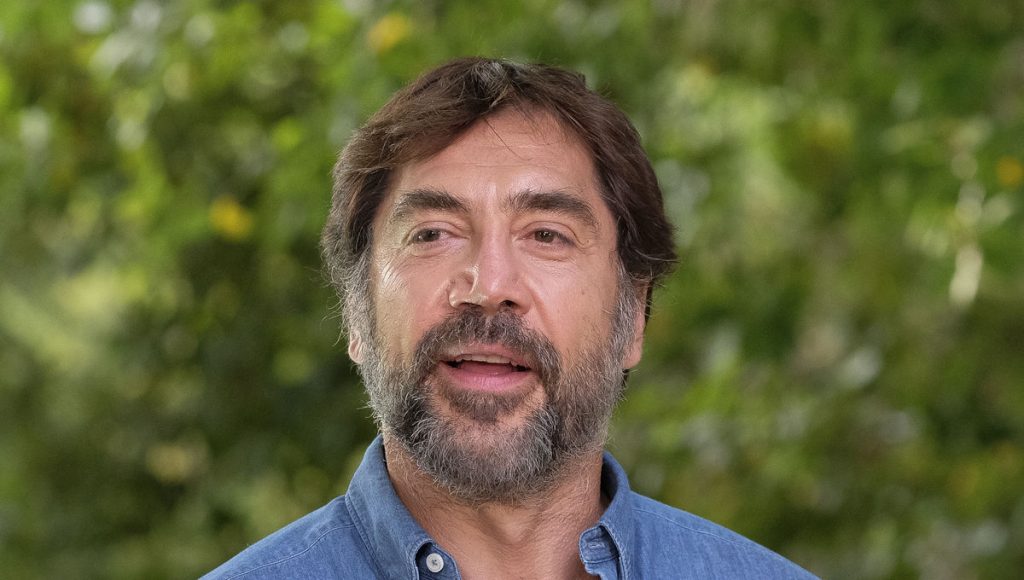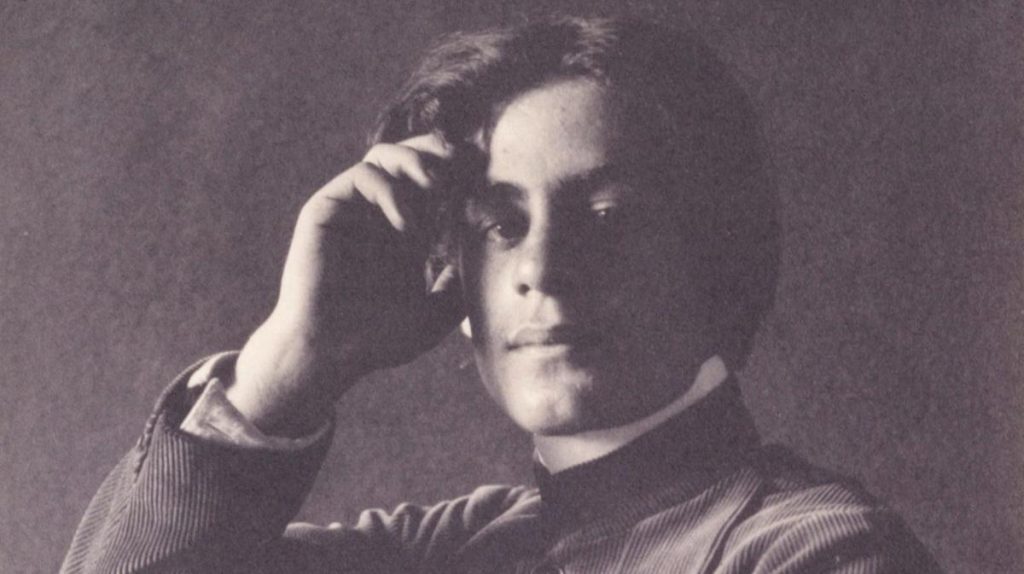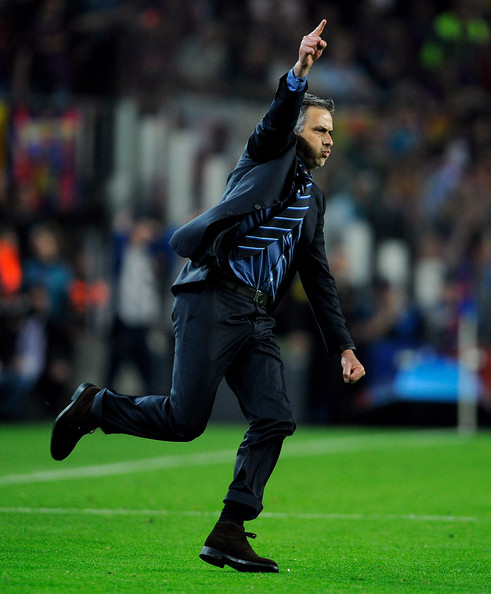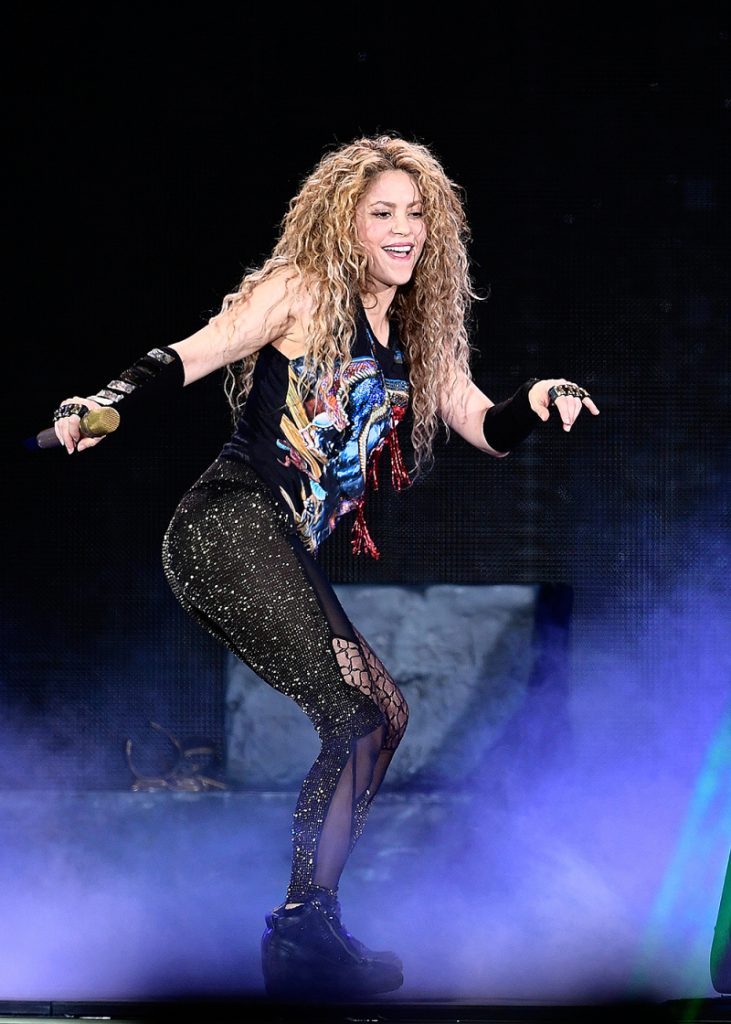
7 Remarkable People Who Learnt New Languages To Have Bigger Careers
I recently had a bespectacled Uberdriver who somehow spoke perfect English, perfect Arabic and what sounded like perfect French. He’s Nigerian, learnt French on his own, schooled in Medinah, hence; Arabic, and I asked why he didn’t work for the UN or the CIA. He downplayed his linguistic proficiency and evaded my question about CIA. That trip ended too early and nobody can tell me the guy was not a CIA operative. He never confirmed nor denied.
I respect people who are able to learn and master languages because it requires persistence, practice and that bit of intelligence. Here, we explore some prominent people who mastered new languages to kick-start and/or improve their careers.
JAVIER BARDEM

While I think Benicio del Toro is a better actor all around, I generally prefer to watch Bardem. Bardem’s uncle was a screenwriter and his grandparents were actors. In Nigerian parlance, I think that qualifies as having it in his blood. He began acting in his native Spain as a teenager and had considerable success.
In 1997, John Malkovich offered a 27-year-old Bardem a role, but he turned it down because his English was wretched. Much later, in 2002, he starred in Malkovich’s “The Dancer Upstairs”. The script had him in a subordinate role, but due to production glitches, Bardem had enough time to learn English and take on the lead role.
Asked if rehearsing for an English-speaking role is any different from rehearsing for a Spanish-speaking role?
“Totally! You need to work hard in order to own the language, own the words. You have to put emotion and sensations into the words that are, otherwise, blank, emotionally blank to you because you haven’t had the experience in your life to use those words, to live with those words. So it’s a matter of really sitting down with a great dialect coach and work little by little until you own those dialogues, and that takes time.”
Bardem has since given us blockbusting performances in No Country For Old Men, Skyfall, Pirates of the Caribbean and many other acclaimed roles.
CELINE DION

I have always imagined one has to have a firm grasp of general knowledge to do well on an episode of WhoWantsToBeAMillionaire. What languages do they speak in Switzerland? What are the official languages in Algeria? Does Canada have a French-only speaking region? Is Charlamagne, Quebec one of those places? Is that where Celine Dion is from?
Yes. Yes. Yes.
Celine Dion released seven French albums before she was twenty and was a star. At 15, already one hell of a (French) singer, she decided to conquer new markets. So she enrolled with Ecole Berlitz to learn English nine hours a day, five days a week for two months. I’ve seen Yoruba Youtube clips of her early struggles with the H factor. Ah
Jim Santella wrote, “Like an iron fist in a velvet glove, the power of Celine Dion’s voice is cloaked in a silky vibrato that betrays the intensity of her vocal commitment.”
Celine has 27 studio albums as of writing; 12 in English and 15 in French. Fandom is a crazy thing. After she hit it off with Anglophone fans, their allegiance to Celine’s music transcended her English albums and she has been credited with introducing Francophone music to many Anglophone countries. Her albums, D’eux and S’il suffisait d’aimer are the best-selling francophone albums in history.
Celine Dion has sold 250 million albums worldwide. Two hundred and fifty million!
KAHLIL GIBRAN

He died in 1931 at just 48. Born in Lebanon when Lebanon was part of Syria, twelve-year-old Kahlil first migrated to the United States in 1895 before being sent back to Beirut at 15 where he went to school before making a final return to the states in 1902. There, his artistic proclivities were nurtured by teachers and benefactors. His writing has been noted to have elements of Nietzschean rebellion, Blakean pantheism and Sufi mysticism. (No, me neither).
His first five works published between 1905 and 1914 were written in Arabic. All through the subsequent seventeen years until his death, he kept alternating between publishing works in his native Arabic and his perfect English. “The Prophet” is a collection of prose-poems on many topics and has been translated into 70 languages, at least.
On Laws, Gibran wrote:
“…but to whom life is a rock, and the law a chisel with which they would carve it in their own likeness,
What of the cripple who hates dancers?
What of the ox who loves his yoke and deems the elk and deer of the forest stray and vagrant things?
What of the old serpent who cannot shed his skin, and calls others naked and shameless…”
Gibran is the third best-selling poet of all time; third only to Lao-tzu and a certain Shakespeare.
JOSE MOURINHO

A walking sound bite. The self-proclaimed Special One is one of the most successful football managers of all time. With age, the mystery surrounding Mourinho has worn off from when he first came on the scene at the turn of the century. A most controversial person, he is. He speaks so deliberately and this rankled the leadership in England upon his employment by Chelsea in 2005.
After a brief playing career in the Portuguese second division, Mourinho studied sports science and earned his coaching badges before working as a P.E. teacher while moonlighting as a scout. Mourinho’s was a classic case of preparation meeting opportunity as he was already into his football journey before Sporting Lisbon’s president Sousa Cintra hired him to cater to Sir Bobby Robson.
Mourinho became an interpreter for Sir Robson at Sporting CP, following him to Porto FC and then Barcelona in Spain. A lot has been said about his roles, but the truth is that he only began as an interpreter before working, sometimes concurrently as a scout, an assistant coach and so on. After Robson left Barcelona, he worked with Robson’s successor, Louis van Gaal before going back to his native Portugal to start a career as a head coach.
Many years later, Sir Robson said of Jose: “Jose was a personable young man who was nominated to look after me because of his good English and strong background in football.”
Mourinho’s quotes are at once amusing, brilliant and sometimes downright strange.
“Young players are a little bit like melons. Only when you open and taste the melon are you 100% sure that the melon is good.”
On developing Chelsea’s young stars.
Asked his thought on Graham Poll refereeing a match, he quipped: “If you ask me if I jump with happiness when I know Mr Poll is our referee? No.”
Even when he’s saying nothing, he’s still saying a lot: “I have nothing, nothing to say. Nothing, nothing to say. Nothing to say, I have nothing to say. Nothing to say, I am so sorry, I have nothing to say.”
Jose Mourinho. He says things.
SHAKIRA

No matter the amount of toxic masculinity bedevilling your soul, you cannot tell me you haven’t locked yourself in a bathroom, stripped omoluabi-naked, raised both hands over your head and taken your hips from side to side. Because hips don’t lie. And Shakira is a goddess.
The Colombian released her first (Spanish) album at 13, finished high school at 15 and immediately moved to the Bogota. She made the decision to learn the language in order to have full control over her songwriting. The first result was her “Laundry Service” album which has sold over 13 million copies.
An accomplished polyglot with Spanish, Portuguese, Italian, Catalan, French, English and Italian in her repertoire, you can hear how deliberate she is from her amusing lyrics; none more than her first proper monster hit in the English-language market in her fifth album; Whatever Whenever where she wrote/sang:
“…lucky that my lips not only mumble,
They spill kisses like a fountain,
Lucky that my breasts are small and humble,
So you don’t confuse them with mountains…”
In second grade, Shakira did not make her school’s choir because one of her teachers said she sounded “like a goat,” you see. To be fair, she might have, and only improved over the years. These things are never clear.
DR. SHEIKH MUHAMMAD KAMALUD-DEEN HABEEBULLAH AL-ADABY
Sheikh Kamal makes this list alongside the equally-revered, and perhaps more popular Sheikh Adam Al-Ilory.
Sheikh Kamal was given birth in Ilorin in 1905. He began his Qur’anic Education at an early age in Alore, Ilorin and after mastering the Arabic Language and by extension, Islam, he propagated Islamic doctrines through public lectures before establishing Az-Zumratul Al-Adabiyyah Arabic and Islamic School in Lagos in 1928. The Ilorin Branch of the School was established in 1930.
He founded Ansarul-Islam Society of Nigeria on 28th May 1942 before opening the mission’s first primary school of the society in Ilorin in his 1947. Over the following years, the mission covered other parts of Nigeria and some West African countries.
The first Secondary School of the Society was established at Ijomu-Oro in 1970, closely followed by that of Ilorin in 1971. Today, Ansarul Islam Society has about seventeen Secondary Schools in Nigeria. Ansar-ul-Islam’s influence comes in their socio-cultural impact and direct connection to the communities in terms of schools, poverty alleviation, hospital-funding and social responsibility.
Before his death, Sheikh Kamal received widespread acclaim for his distinguished international Islamic contributions to the development of scholarship and advancement of mankind. The Emir of Ilorin made Sheikh Kamal the first Grand Mufti of Ilorin.
SHEIKH ADAM ABDULLAHI AL-ILORY
He learned the Arabic language and became a prolific writer later in his career. He founded the popular Markaz in Agege which has since spawned generations of scholars who have had serious impacts all over Africa. Markaz is the Nigerian equivalent of Al-Azar due to its influence in the Islamic academic and scholarly community. Al-Ilory’s institution pioneered the use of modern teaching methods and equipment in this part of Africa.
Sheikh Adam was responsible for modernizing teaching by using chalkboards to teach instead of the prevalent slate and ink. Markaz also introduced written examinations, writing with pens and books, wearing uniforms and getting certificates. He also introduced facilities such as dormitories, libraries, printing press and clinics for students.
He authored books on history, jurisprudence, creed, mysticism, linguistics, education and anthropology. His works are used all over West and North Africa, SouthEast Asia and in the Middle East.
Enjoyed this? Share.





